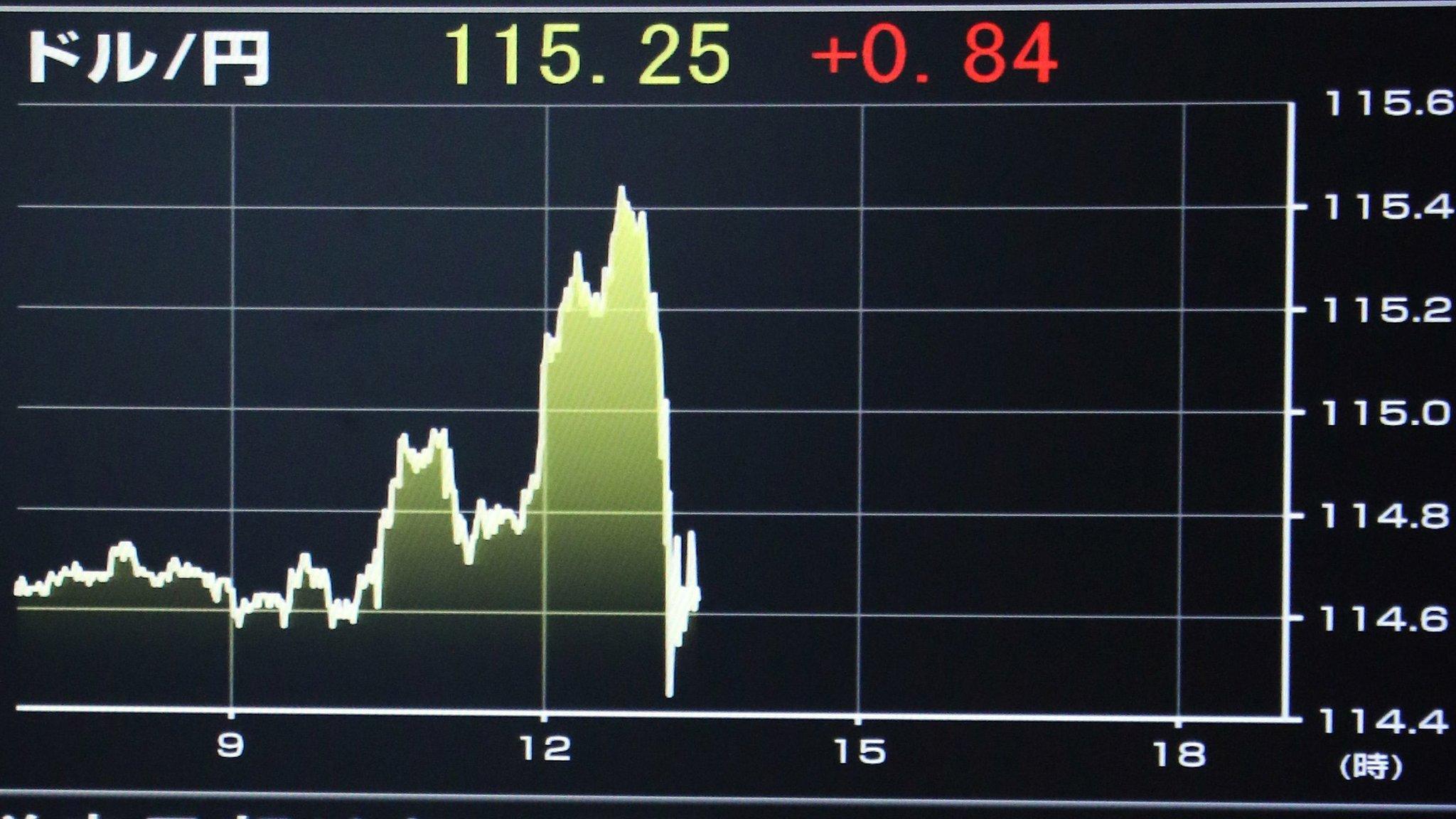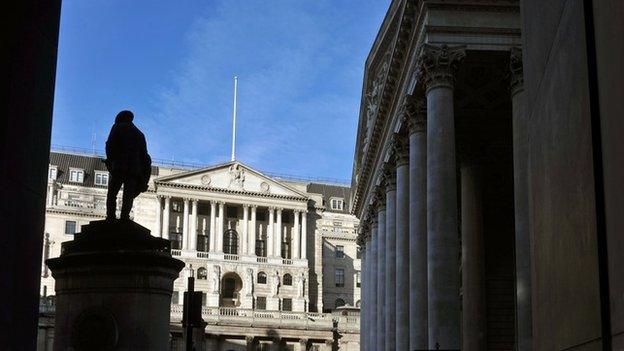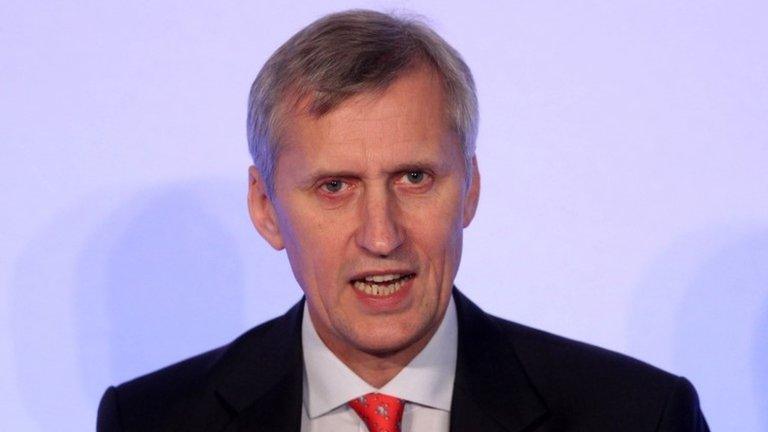Bank of England in shake-up after rate manipulation criticism
- Published
Mark Carney: Forex rigging will be "prosecuted to the full extent of the law"
The Bank of England will tighten its governance after criticism of its response to claims of manipulation of foreign exchange (forex) rates.
Governor Mark Carney told MPs on the Treasury Committee that it would create a new deputy governor position with responsibility for markets and banking.
He said the person would carry out "a root and branch review" of how the Bank conducts market intelligence.
It comes amid claims that some bank officials knew of alleged forex fixing.
It has been claimed that currency traders colluded via online chatrooms and instant messaging to manipulate forex rates.
During more than four hours of questioning on a variety to topics, Mr Carney said: "This is as serious as Libor if not more so because this goes to the heart of integrity of markets and we have to establish the integrity of markets."
But he said the bank had no warning of the alleged manipulation before October.
The Bank currently has three deputy governors, with responsibility for monetary policy, financial stability and prudential regulation.
The Treasury Committee hearing was aimed at finding out what Bank officials knew of the foreign exchange rate fixing claims.
Mr Carney said he first became aware of the allegations on 16 October.
And he said that within 48 hours of hearing the allegations, the Bank had called in law firm Travers Smith to conduct an independent investigation.
Awareness of claims
Mr Carney's appearance before the committee comes a week after the release of minutes of meetings from 2006 suggesting that some officials were aware of market manipulation then.
The minutes show that a senior member of the Bank of England's staff was told of "attempts to move the market" at a meeting with senior foreign exchange dealers from some of the world's largest banks.
However, Paul Fisher, the Bank's executive director of markets who was head of its foreign exchange division until 2009, told MPs the minutes referred to traders' complaints over difficult markets, not rigging.
"This is about traders whingeing about how difficult their life is and no one is going to have much sympathy for that," he said.
Paul Fisher from the MPC denies the Bank of England had evidence of forex rigging in 2006
Mr Carney also said he had no information that anyone from the Bank condoned, facilitated or took part in market manipulation.
"We can't come out of this with a shadow of doubt about the integrity of the Bank of England," he added.
One Bank of England member of staff has been suspended over compliance concerns.
Mr Carney told the committee the decision to suspend the person was taken by governors, and that "we hold staff to very high standards".
'As bad as Libor'
The chairman of the Treasury Committee, Andrew Tyrie, said he remained to be convinced that the Bank was on top of the forex issue.
"This is the first real test for the Bank of England's new governance structures. Early signs are not encouraging," he said.
He added: "It has taken some time for the Bank's Oversight Committee to take the lead on accusations of misconduct relating to forex.
"The public needs confidence that the Bank's governance structures will ensure that it gets to the bottom of forex-related misconduct allegations. The public also needs confidence that any misconduct in other areas will be discovered."
Regulators have expressed concern that alleged forex manipulation could become the latest banking scandal.
The head of the Financial Conduct Authority, Martin Wheatley, said last month that currency manipulation was "every bit as bad" as the Libor scandal, where banks including Barclays, Royal Bank of Scotland and UBS paid fines totalling $6bn relating to fixing inter-bank lending rates.
- Published20 May 2015

- Published11 March 2014
- Published5 March 2014

- Published4 February 2014
